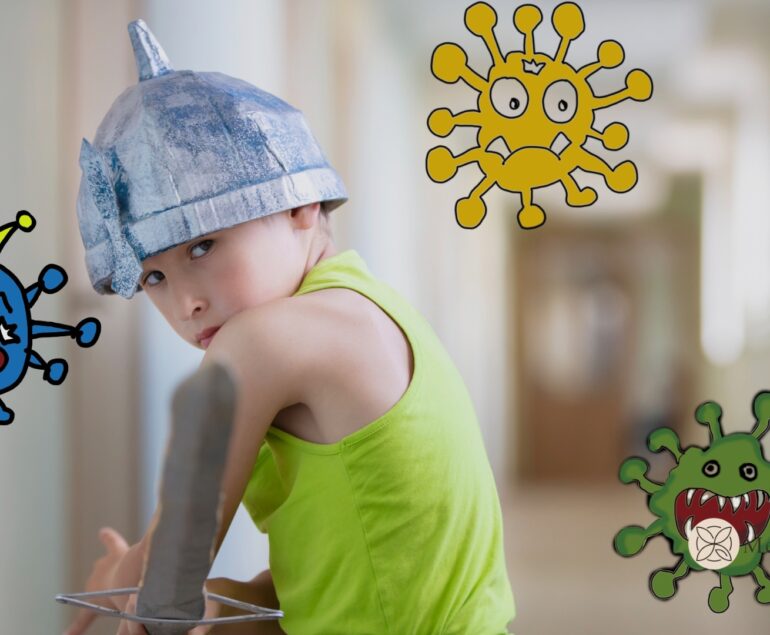Navigating the Storm: Adolescence Guidance and Support for Parents
The adolescent phase is a period of transformation and turbulence in a young person’s life. As children enter their teenage years, they undergo significant physical, emotional, and psychological changes that can be challenging for both the adolescents and their parents. Understanding and providing the right guidance and support during this critical phase is essential for fostering healthy development and nurturing positive relationships. In this blog, we will explore the various aspects of adolescence and offer valuable guidance for parents to navigate this journey with their children.
Understanding Adolescence
Adolescence is the transitional phase between childhood and adulthood, typically ranging from the ages of 10 to 19 years. During this time, young individuals experience a series of changes, including puberty, brain development, and an increased desire for independence. They may also grapple with identity formation, peer pressure, academic stress, and emotional ups and downs. It’s crucial for parents to acknowledge that these changes are a normal part of growth and development.
Effective Communication is Key
Open and effective communication is the cornerstone of any healthy parent-adolescent relationship. Encourage your child to express their thoughts, feelings, and concerns without judgment. As a parent, listen actively and empathetically, validating their emotions and experiences. Avoid being overly critical or dismissive, as it can lead to a breakdown in communication and hinder your ability to understand what they are going through.
Set Boundaries and Rules
As adolescents seek more independence, it’s vital for parents to strike a balance between granting autonomy and setting appropriate boundaries. Establish clear rules regarding curfews, technology usage, and academic responsibilities. Explain the reasons behind these rules and discuss potential consequences if they are not followed. Consistency is key to reinforcing these boundaries effectively.
Respect Their Privacy
During adolescence, young individuals value their privacy and personal space. As parents, it’s important to respect this need while still staying involved in their lives. Avoid invading their privacy, such as snooping through their belongings or monitoring their online activities without reason. Instead, have open conversations about the importance of responsible internet use and safety.
Encourage Healthy Relationships
Adolescents often place significant emphasis on their social lives, which can lead to challenges in forming and maintaining healthy relationships. As parents, encourage positive friendships and discuss the importance of surrounding themselves with individuals who respect and support them. Be available to listen and provide guidance if they encounter difficulties in their social circles.
Emphasize Mental Health
Mental health is a crucial aspect of overall well-being, particularly during adolescence. Keep a close eye on your child’s emotional well-being and be attentive to signs of distress or mood changes. Encourage them to talk about their feelings and seek professional help if needed. Also, be mindful of your own mental health and seek support if the challenges of parenting during adolescence become overwhelming.
Model Positive Behavior
Children often learn by observing their parents’ actions and attitudes. Model the behavior you want to see in your adolescent. Demonstrate effective communication, problem-solving, and stress management techniques. Show them that it’s okay to make mistakes and learn from them, promoting a healthy approach to personal growth.
Be Their Advocate
Adolescence can be a time of uncertainty and self-doubt. Be your child’s advocate, supporting their interests and dreams. Celebrate their achievements, no matter how small, and provide encouragement during setbacks. Knowing that they have your unwavering support can boost their confidence and resilience.
Parenting during adolescence can be a challenging yet rewarding experience. Understanding the changes and challenges that adolescents face is the first step in providing the necessary guidance and support they need. By fostering open communication, setting boundaries, respecting privacy, and modeling positive behavior, parents can strengthen their relationship with their adolescent children and help them navigate through this transformative phase with confidence and resilience. Remember, your guidance can play a significant role in shaping their future and nurturing their well-being.
FAQ's
What is adolescence, and why is it considered a critical phase?
Adolescence is the transitional phase between childhood and adulthood, usually spanning from ages 10 to 19. It is critical because it involves significant physical, emotional, and psychological changes that shape a person’s identity and future.
How can I communicate effectively with my adolescent child?
Open communication is vital. Be a good listener, show empathy, and avoid being judgmental. Create a safe space for your child to express their thoughts and feelings without fear of criticism.
How can I balance granting autonomy and setting boundaries for my teenager?
Grant age-appropriate independence while setting clear rules and expectations. Involve your teen in discussions about rules, explaining the reasons behind them. Consistency is essential in enforcing these boundaries.
My teenager seems distant and secretive. How can I respect their privacy while staying involved in their life?
Respect their need for privacy by avoiding intrusive behavior, but maintain an open and supportive presence. Encourage open conversations and let them know you are available to talk when they are ready.
How can I help my adolescent build healthy relationships with peers?
Encourage positive friendships and discuss the qualities of healthy relationships. Offer guidance on managing conflicts and handling peer pressure. Be a role model for respectful and compassionate behavior.
My teen seems to be going through emotional challenges. How can I support their mental health?
Pay attention to any signs of distress or mood changes. Encourage open conversations about emotions and provide a non-judgmental space for them to share. Seek professional help if needed and prioritize mental health wellness for the entire family.
What are some effective stress management techniques for adolescents?
Encourage your teen to engage in activities they enjoy, such as hobbies, sports, or creative outlets. Teach relaxation techniques like deep breathing and mindfulness. Regular exercise and a balanced diet can also help manage stress.
How can I be a positive influence on my teenager's behavior?
Model the behavior you want to see in your teen. Demonstrate effective communication, problem-solving, and coping skills. Show them that it’s okay to make mistakes and learn from them.




